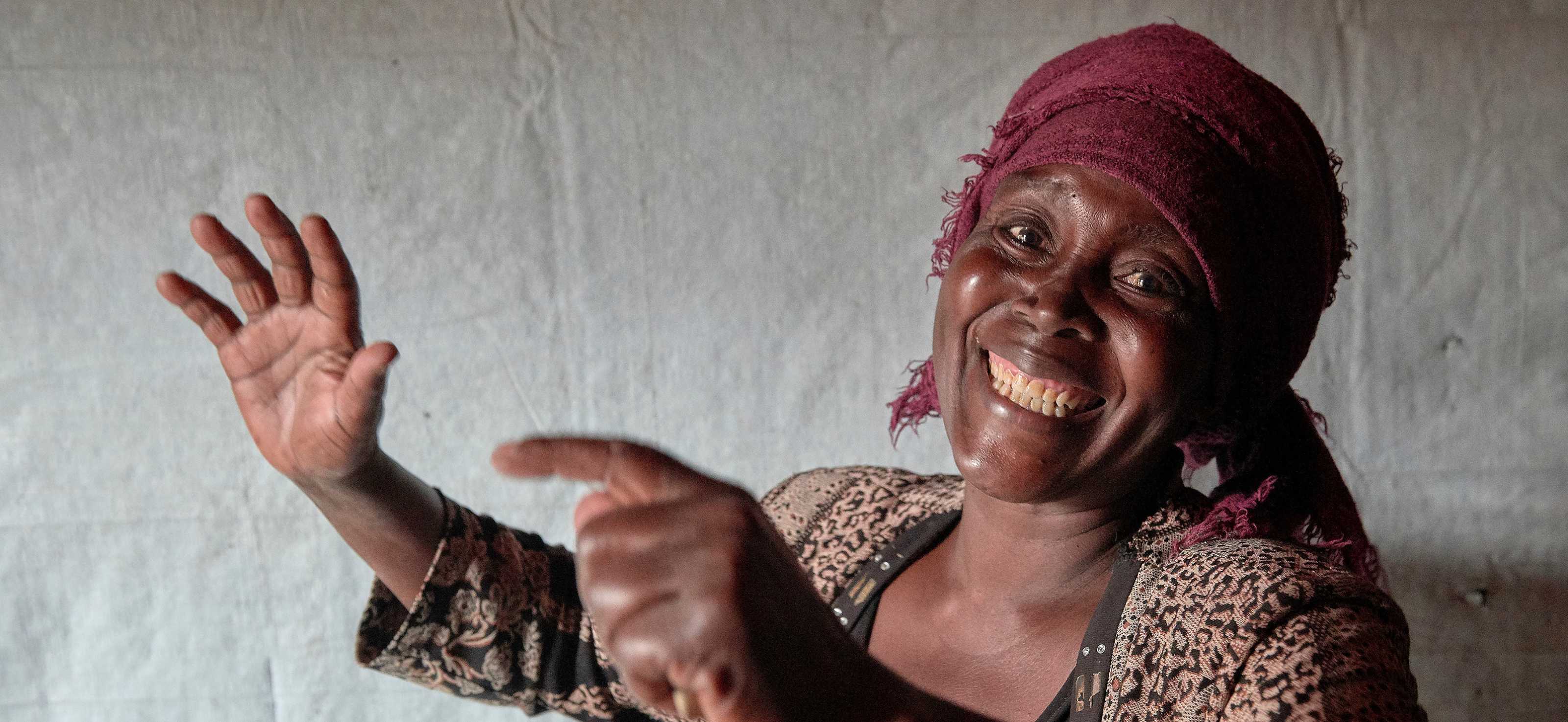TRIGGER WARNING: Sexual Violence
Mawazo Biteko was working as a housekeeper when another member of the home's staff raped her.
"I felt sick, and I couldn't get out of bed," she said.
Sadly, Mawazo isn't alone. She lives in the Democratic Republic of the Congo, where sexual violence is such a widespread problem that it has major public health implications. Following an attack, women are often blamed by their families, abandoned by their husbands and shunned by their communities — left alone to suffer in shame and stigma. For some it means unwanted pregnancy or contracting a dangerous disease. For others it means financial ruin. For every survivor, it is an attack not only on their body but also their dignity and humanity — but it does not have to mean the end of hope.
Fortunately, Mawazo's husband had heard an announcement on the radio that post-rape care services are available at the local health center, and he encouraged his devastated wife to see a doctor as soon as possible — the first step toward the healing and recovery she needed.
Providing holistic care for survivors of rape and violence
For over a decade, Corus World Health has supported health centers in eastern DRC to provide holistic care to survivors of rape and other forms of sexual and gender-based violence. We work with a host of clinics, including Nobel Peace Prize winner Dr. Denis Mukwege's Panzi Hospital, to make sure health workers know how and are fully equipped to care for survivors, physically and emotionally.
First, we ensure the person's emergency health needs are met. Thanks to our donors, health workers have a supply of post-exposure prophylaxis kits on hand so that patients like Mawazo can receive preventive treatment for infections like HIV and have evidence collected in the event prosecution may be possible. They may also be referred for surgery or other care as needed.
Next, we train health workers and recruit counselors to support emotional healing from trauma and stigma. After taking care of her physical wounds, a pair of health workers invited Mawazo and her husband to participate in counseling through the health center. She enrolled in a support group, where she found friendship and guidance to help her process what happened to her.
Meanwhile, your generosity also allows us to offer services to help survivors gain financial independence and regain their confidence, such as job skills training, literacy tutoring and small business microloans.
Finally, we provide legal support — connecting survivors with attorneys to help them find their perpetrators and bring them to justice. Because impunity is a major problem in the region, we have worked with the American Bar Association to bolster courts and ensure official Congolese laws that protect women, rather than tribal or traditional laws that do not, are being upheld.
Changing norms to promote equality
Mawazo says our comprehensive approach helped her to recover, and to connect. "At the social center, I found five other women who had been attacked like I was," she said. "I know I am not alone."
Yet we also know the effort to end sexual violence does not end at the clinic door. So, we have recruited faith leaders to speak out against sexual violence in their congregations. We work with schools and community centers to promote messages around women's rights and the need to send girls to school. As with most health issues, prevention is the best medicine.
We even made it possible for Mawazo's husband to hear these important messages on the radio — so that when a terrible atrocity happened to his wife, he was ready to respond with care, support and the knowledge of how to get her the help she needed to move forward.

